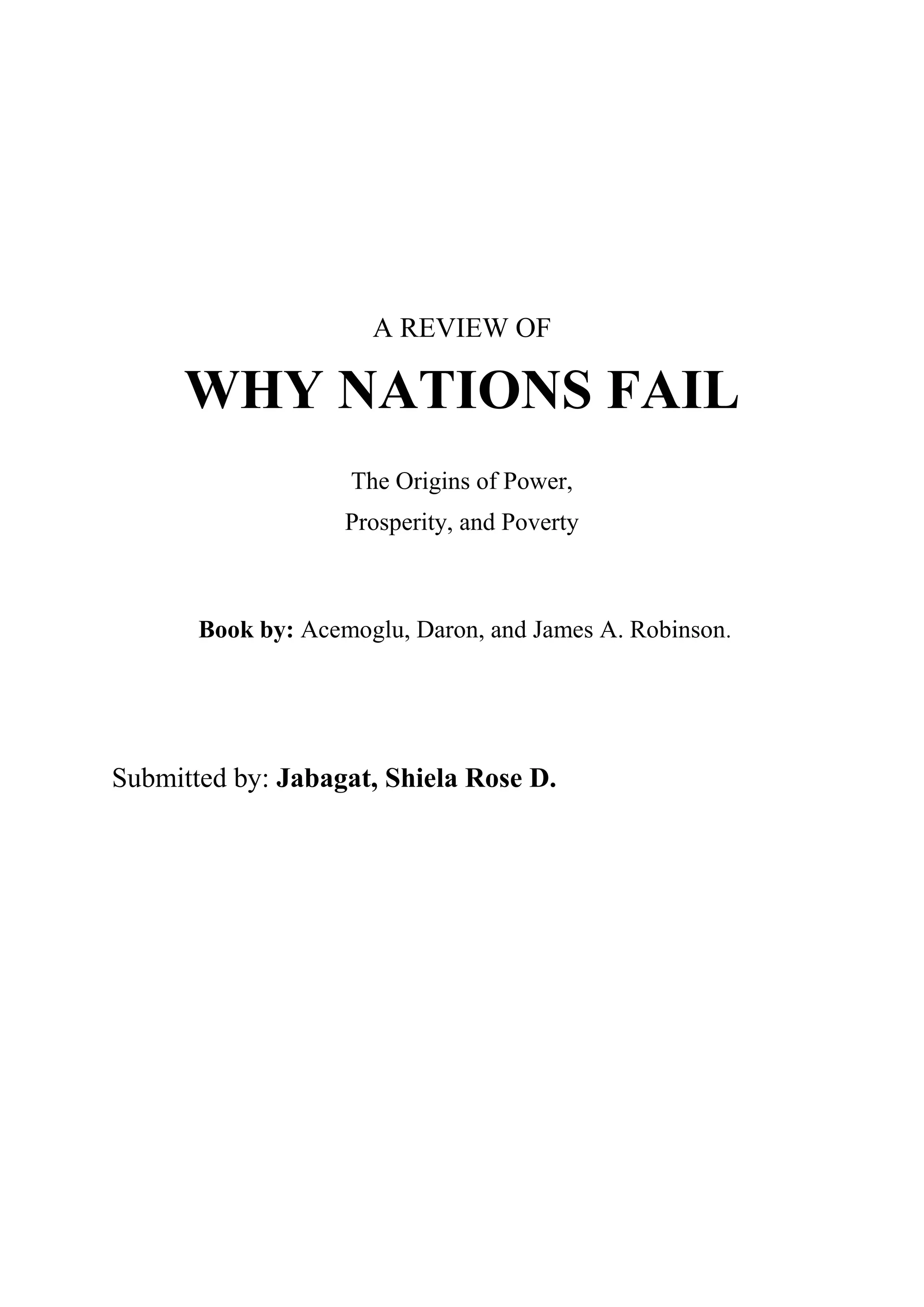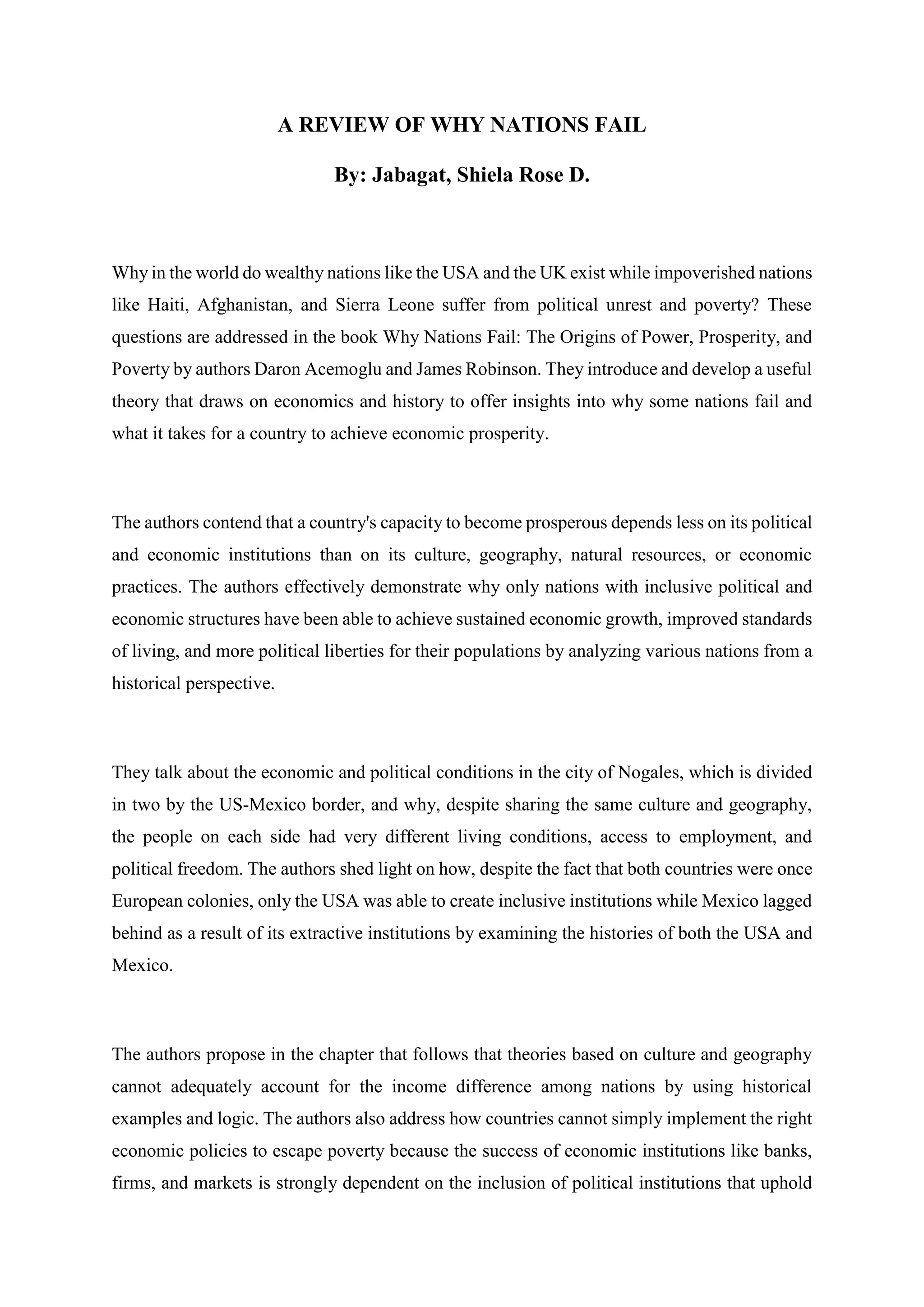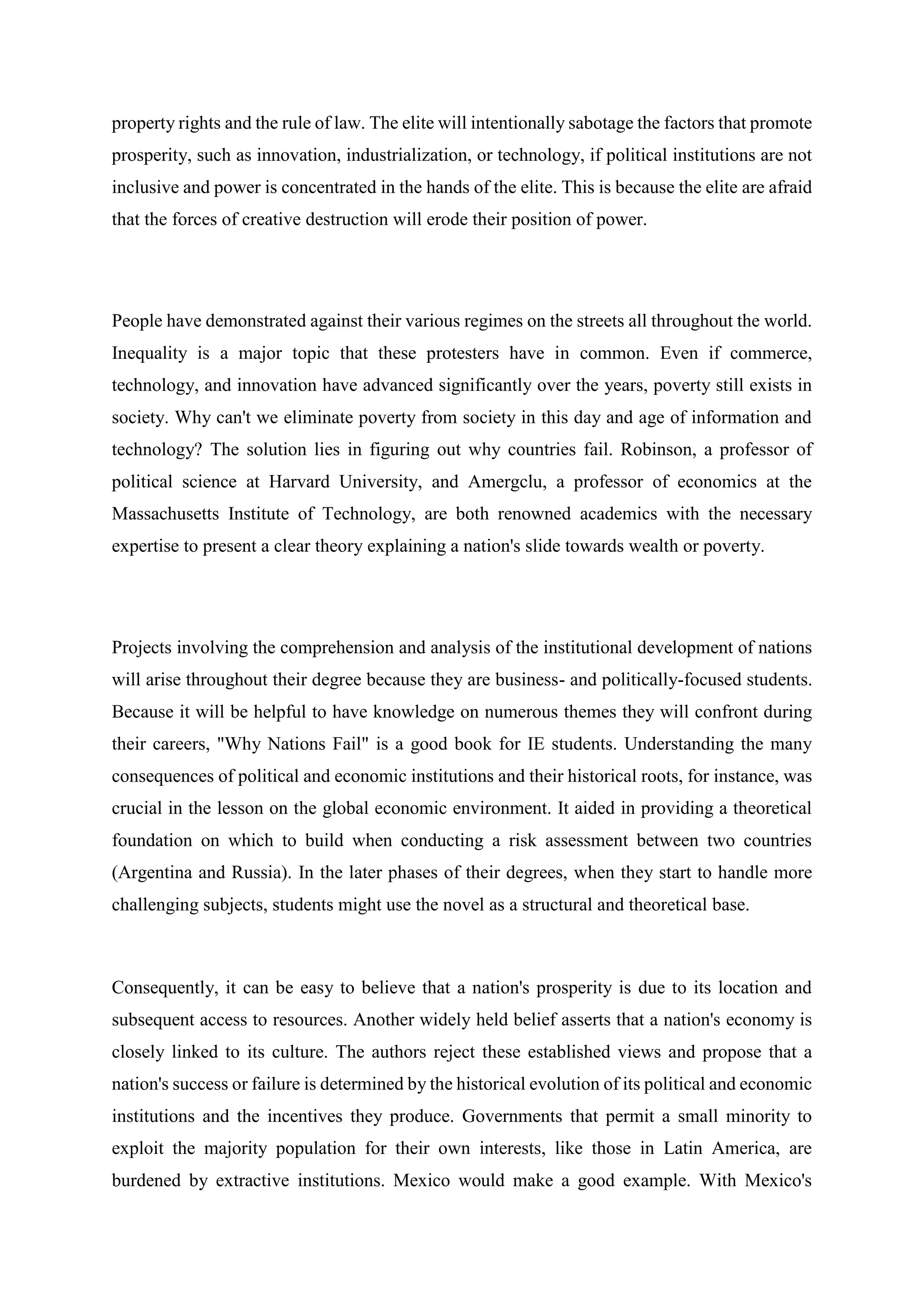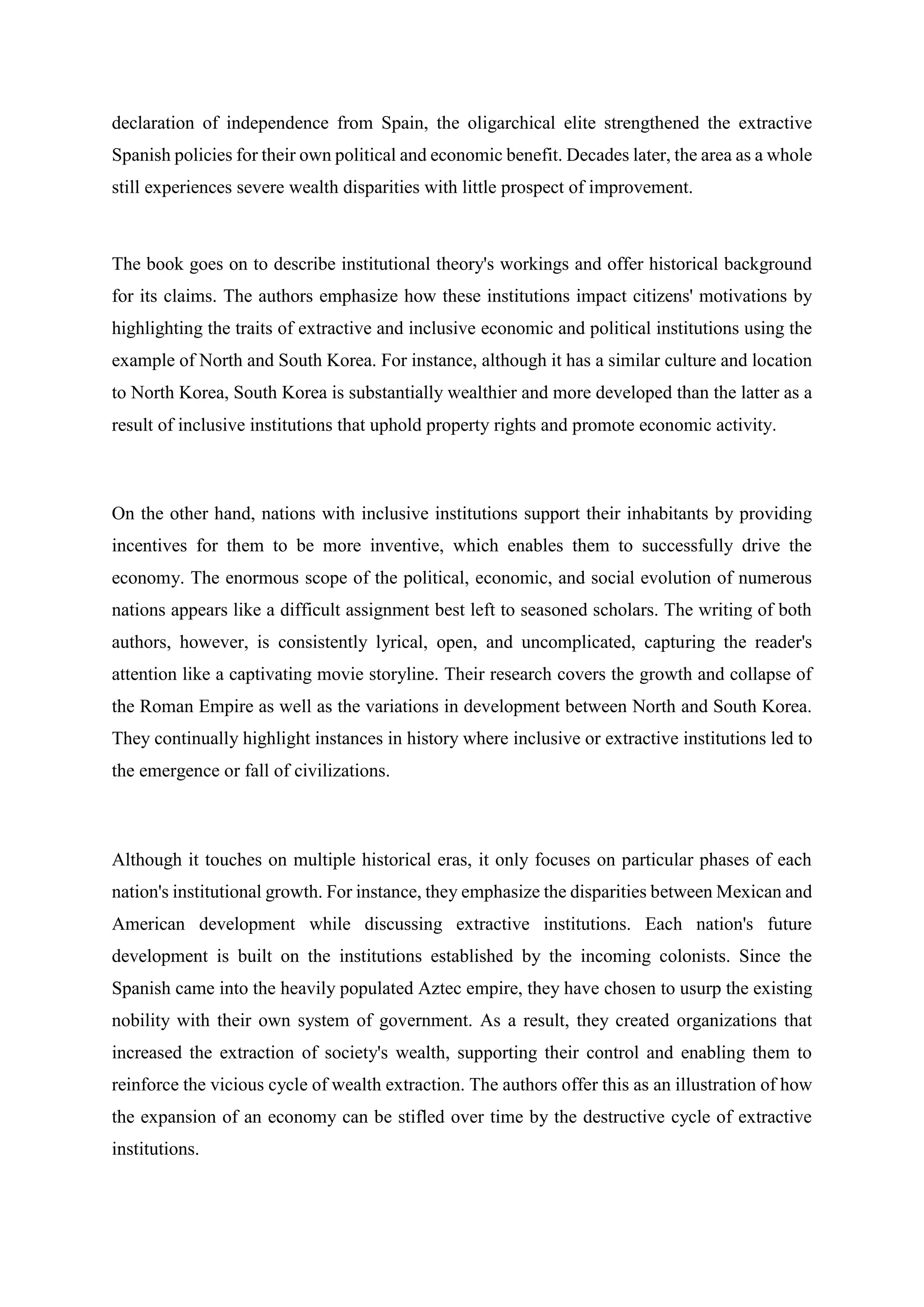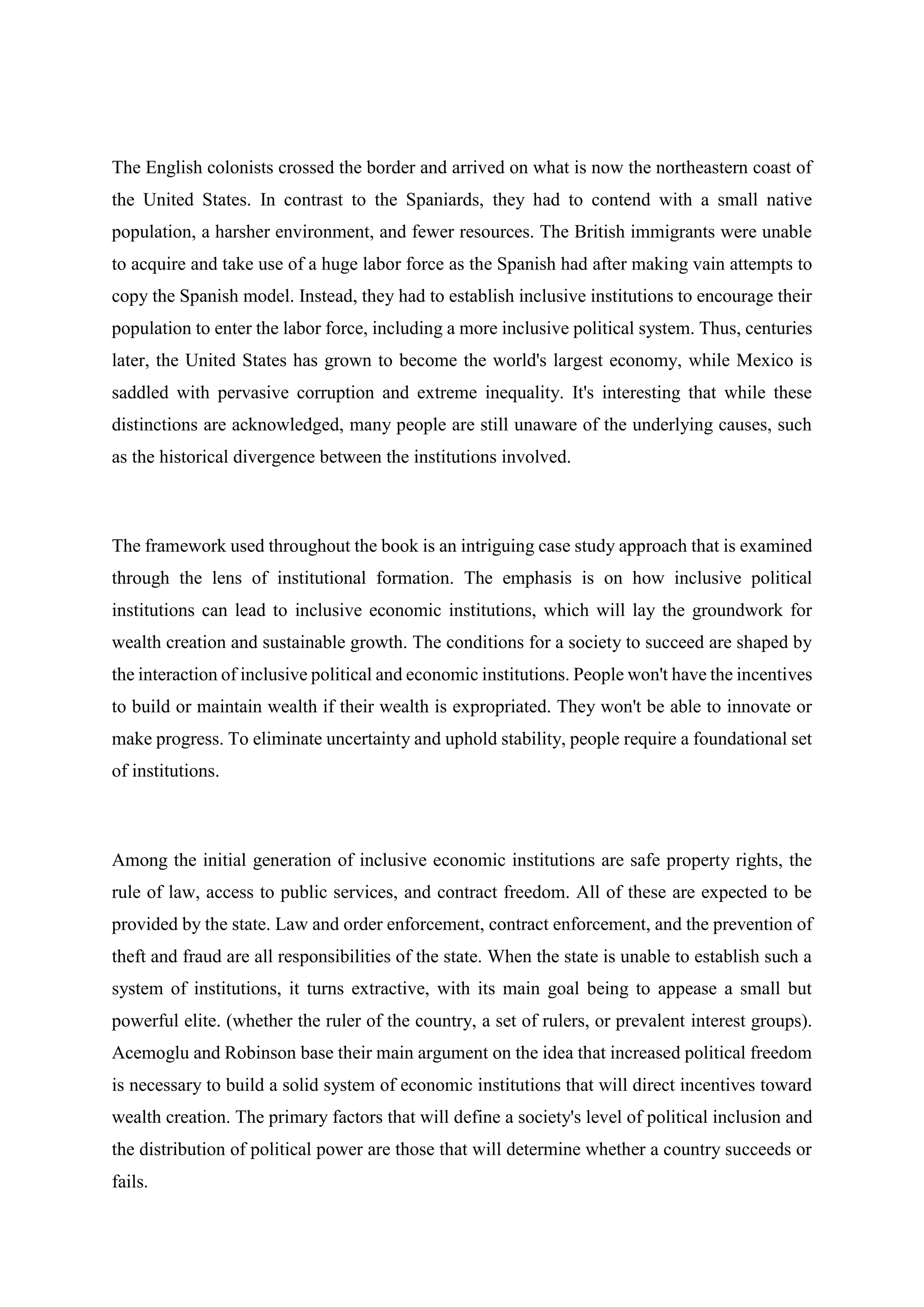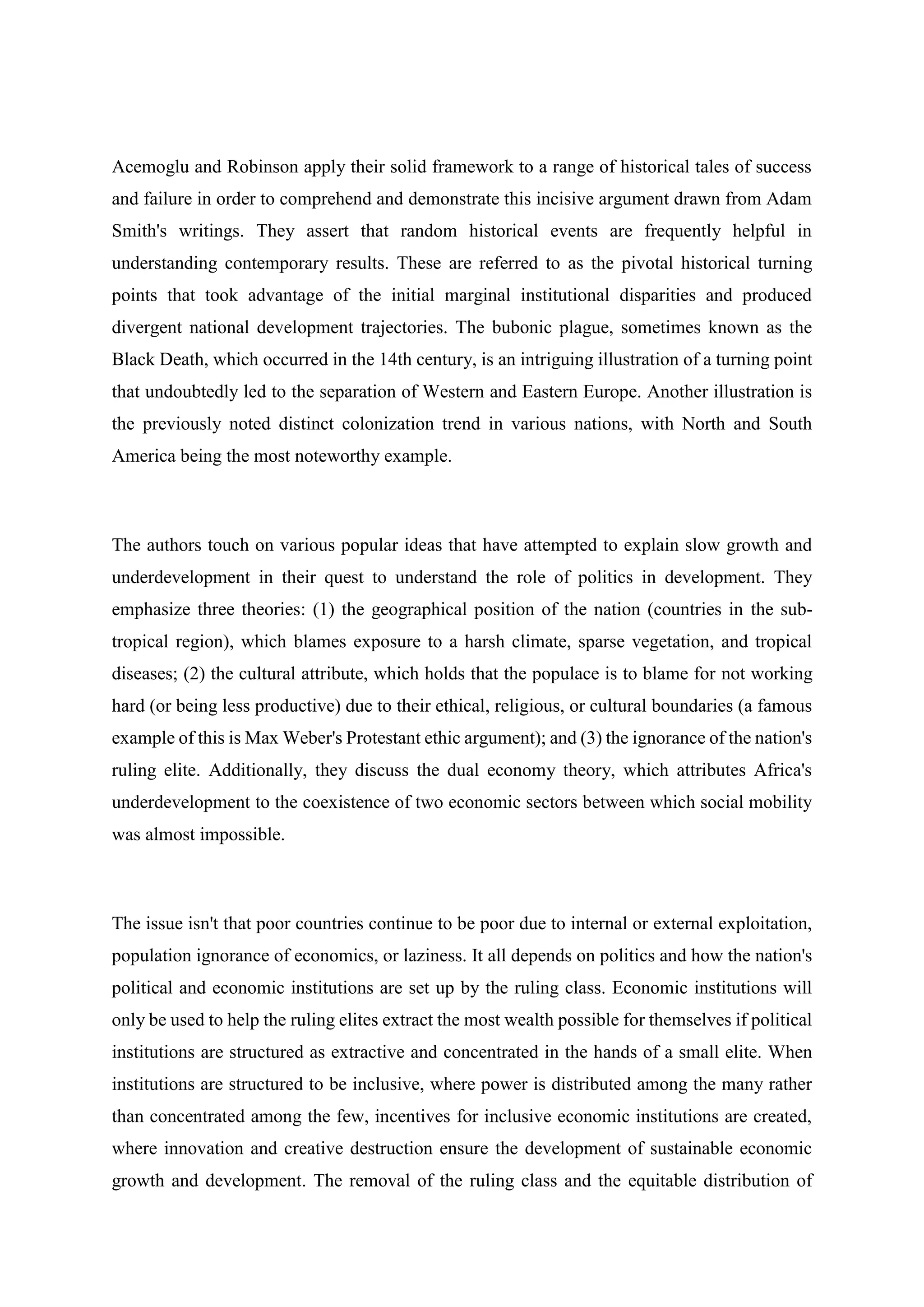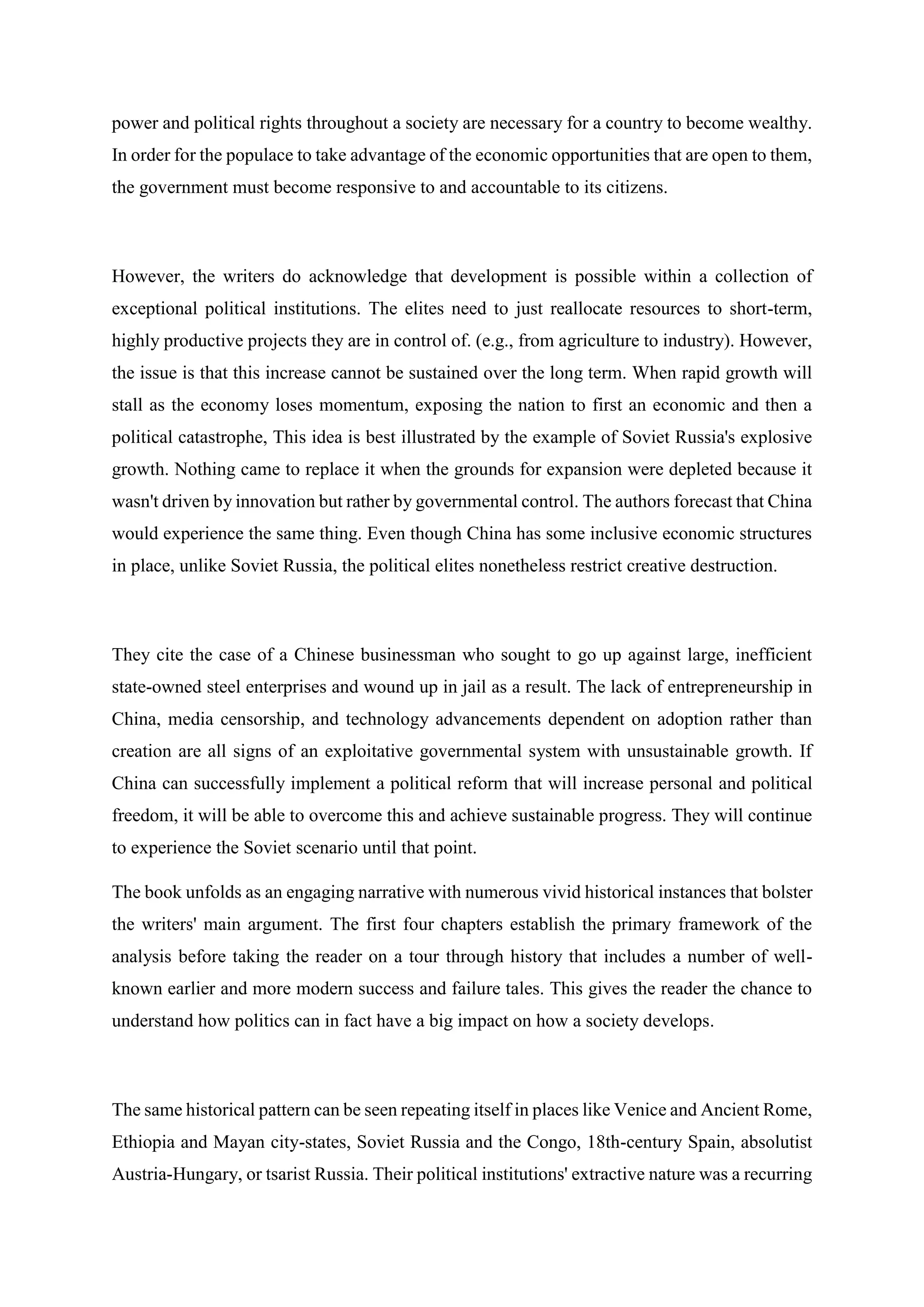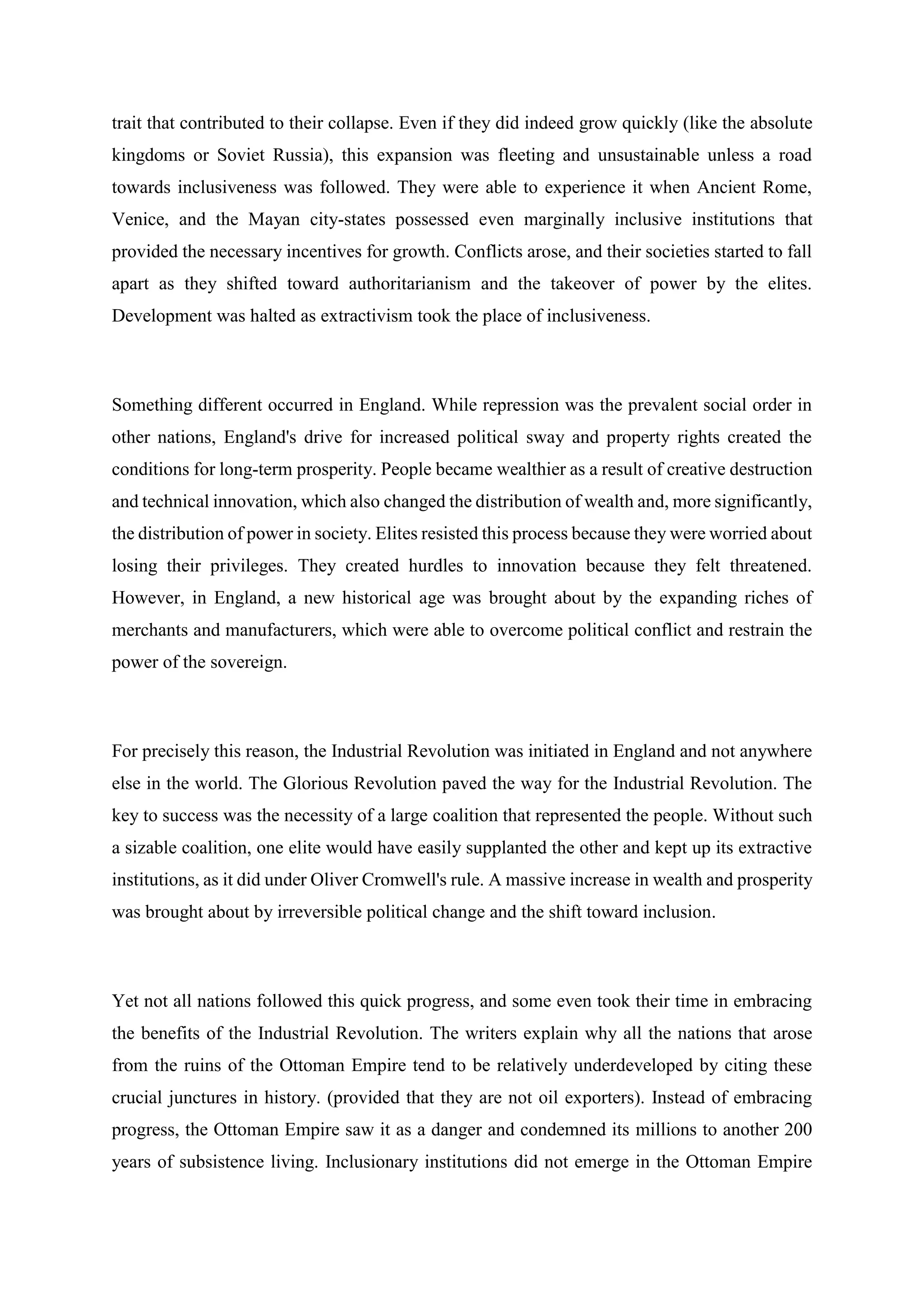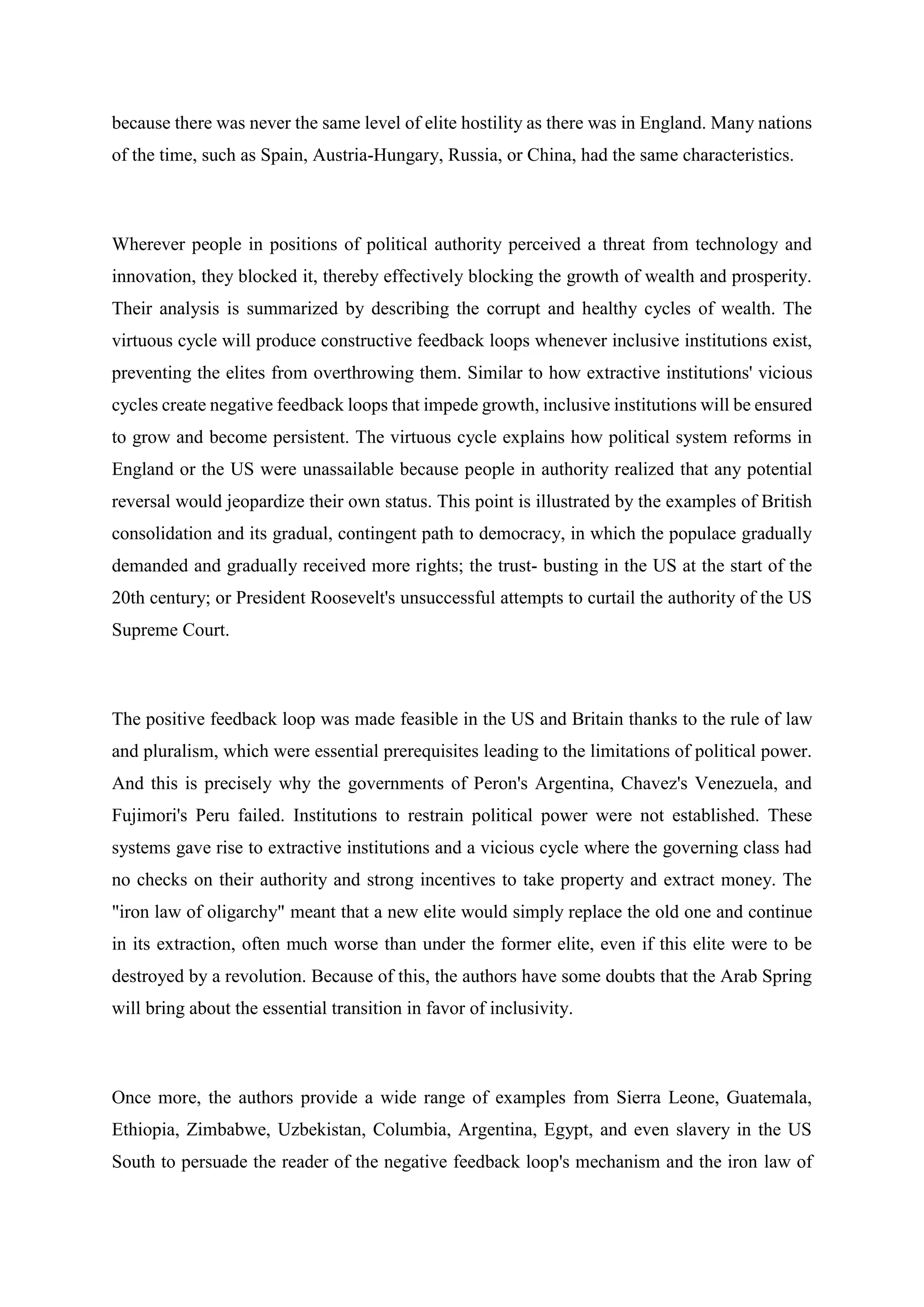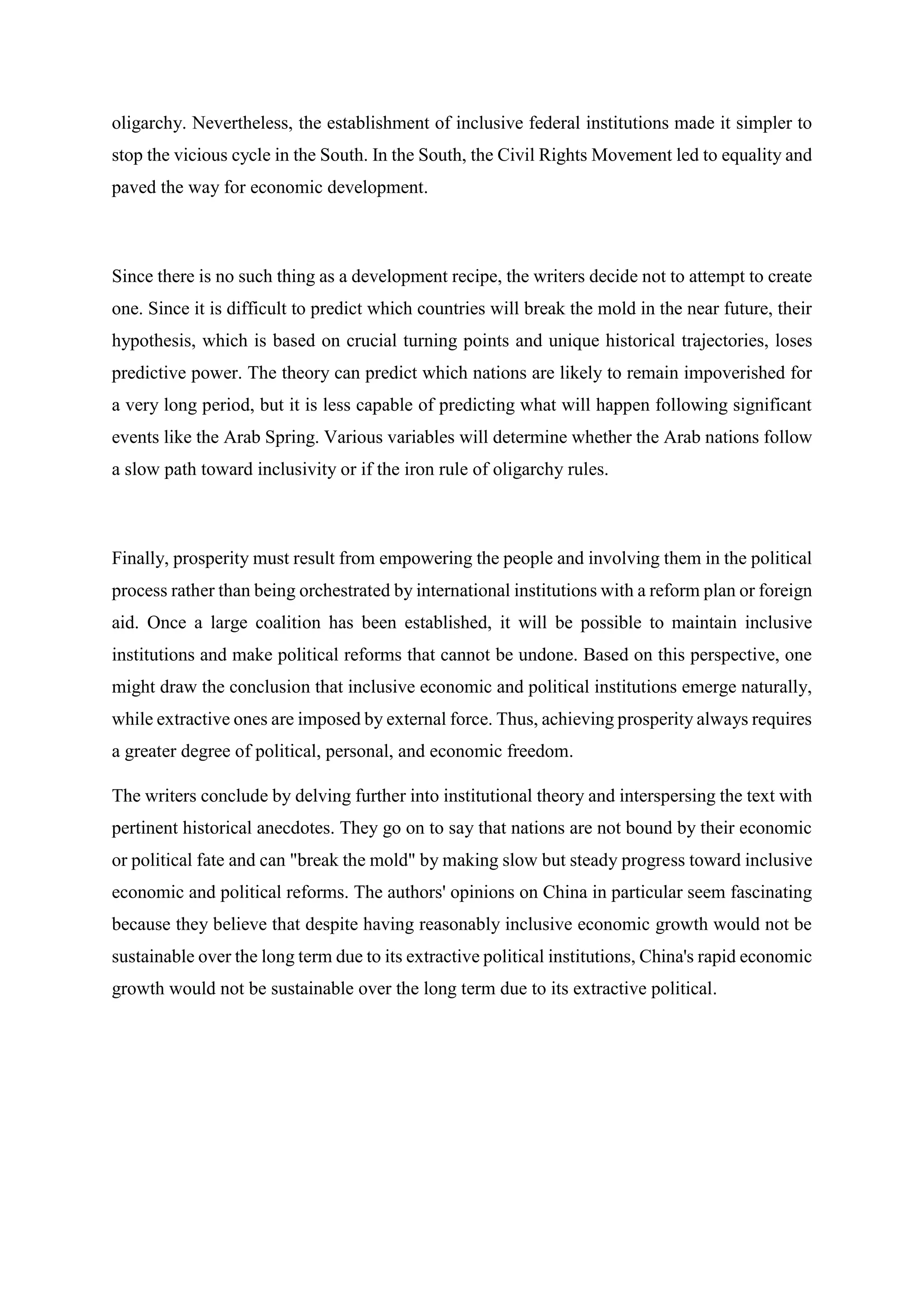This summary provides an overview of the book "Why Nations Fail" by Daron Acemoglu and James Robinson:
The book argues that a nation's economic success or failure depends more on its political and economic institutions than other factors like culture or geography. Nations with inclusive political structures that distribute power widely and uphold property rights and the rule of law have achieved sustained economic growth. Nations with extractive institutions that concentrate power in the hands of elites stagnate economically. Historical examples from the US, Mexico, England, and other nations demonstrate how their long-term trajectories diverged based on inclusive vs. extractive institutions formed during colonization or state-building. The book uses this framework to analyze various theories for underdevelopment and
